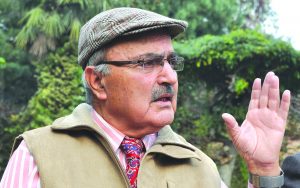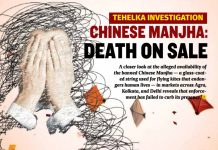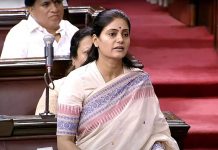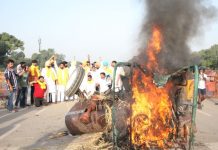 In a recent interview, the senior National Conference leader Mustafa Kamal said that his party will not participate in any electoral process pending reversal of centre’s decision to revoke Article 370 which granted J&K its autonomous position within Indian Union.
In a recent interview, the senior National Conference leader Mustafa Kamal said that his party will not participate in any electoral process pending reversal of centre’s decision to revoke Article 370 which granted J&K its autonomous position within Indian Union.
However, the party was quick to contradict his statement, saying the decision to do so rested with the party president Dr Farooq Abdullah and the Vice President Omar Abdullah, who are currently jailed.
In raising the issue of the NC’s participation in future polls, Kamal has given voice to a serious dilemma faced by the political parties in the newly created union territory. To participate or not to participate in polls. The same dilemma faced by the separatist camp.
The problem is that polls are not a simple democratic exercise in Valley. They have a meaning and a dimension that goes beyond the government formation. That is, they momentarily challenge the most basic premise of the political conflict in the UT: that Kashmiris want out of the system and secede.
So participation in polls, all varieties of them, takes on several interpretations. While New Delhi sells it as a vote for India, mainstream parties in Kashmir generally a vote for governance, separatists see the voting as a betrayal to their cause if not a support for New Delhi.
The successful elections thus pose a larger existential dilemma for the separatists and post impertinent questions on their ideological narrative. New Delhi declares umpteenth victory in the battle for hearts and minds of Kashmiris and pretends Kashmir as a settled issue. Mainstream politicians in the fray lunge for the power they suddenly acquire. But separatists feel they have lost face — some of them more intensely than the others.
“The issue has dimensions to it that go to the core of the problem in the state., because all the political intrepretations of the poll participation are motivated and hence false. Serious because the truth is spread across all the interpretations,” says Naseer Ahmad, a columnist. “And over and above all these meanings, elections in Valley have an independent reality of their own. The majority of the people participating in polls are barely conscious of the contentious politics surrounding them and vote primarily for its utilitarian value”.
However, the revocation of Article 370 has further transformed the political context. Now other than separatists, mainstream politicians too have cause to boycott the elections. And they have already observed it earlier during the recent Block Development Council polls. This didn’t make much of a difference though considering the small nature of the exercise. In contrast, boycotting an Assembly election will have a far-reaching fallout. It will leave the field open to potential new political players.
More so, to the BJP that has already made some inroads in the Valley by enlisting a cadre of thousands. In the event of a boycott, the BJP with the help of its workers could very well pull off an electoral performance unrelated to its support base. And together with a possible sweep in Jammu, the BJP could well be in a position to form the next government in the UT.
“A mainstream party which mulls a boycott of the electoral process will be expected to take this prospect on board,” says Ahmad. “This makes boycott of the polls more difficult a decision than it appears. And with a heavy political cost”.
letters@tehelka.com











